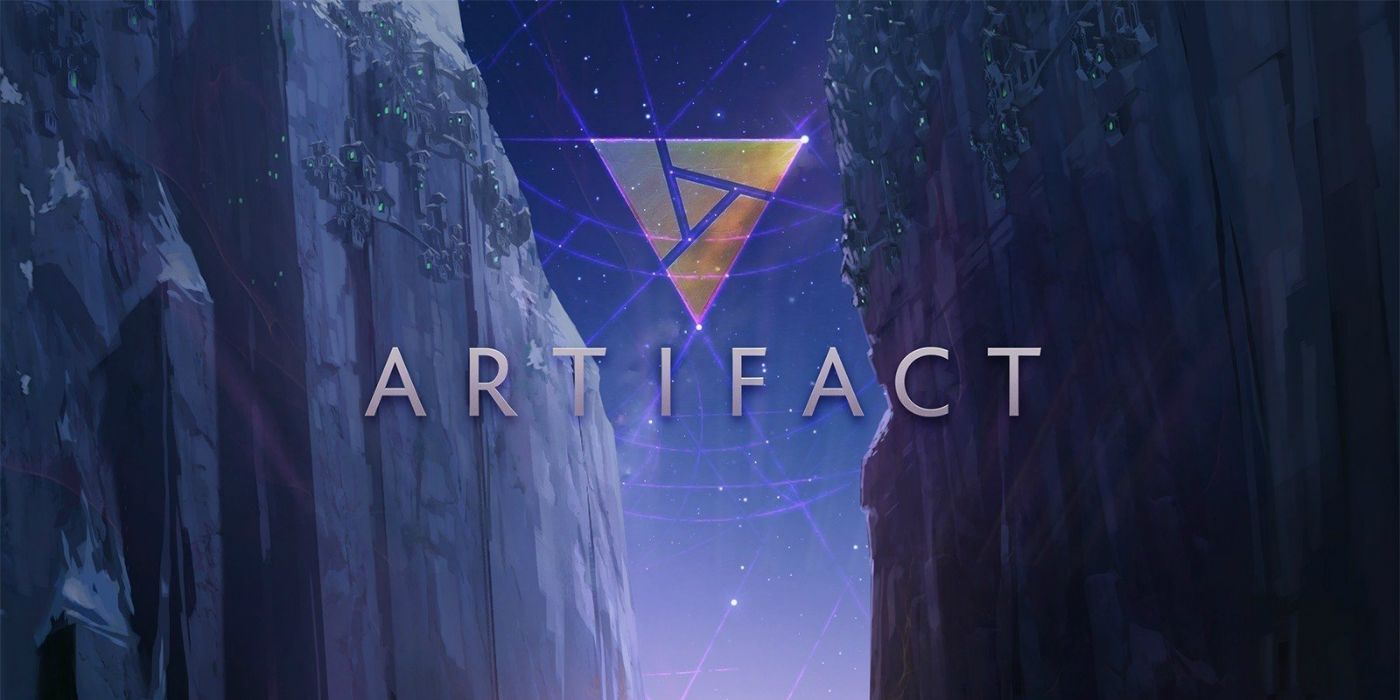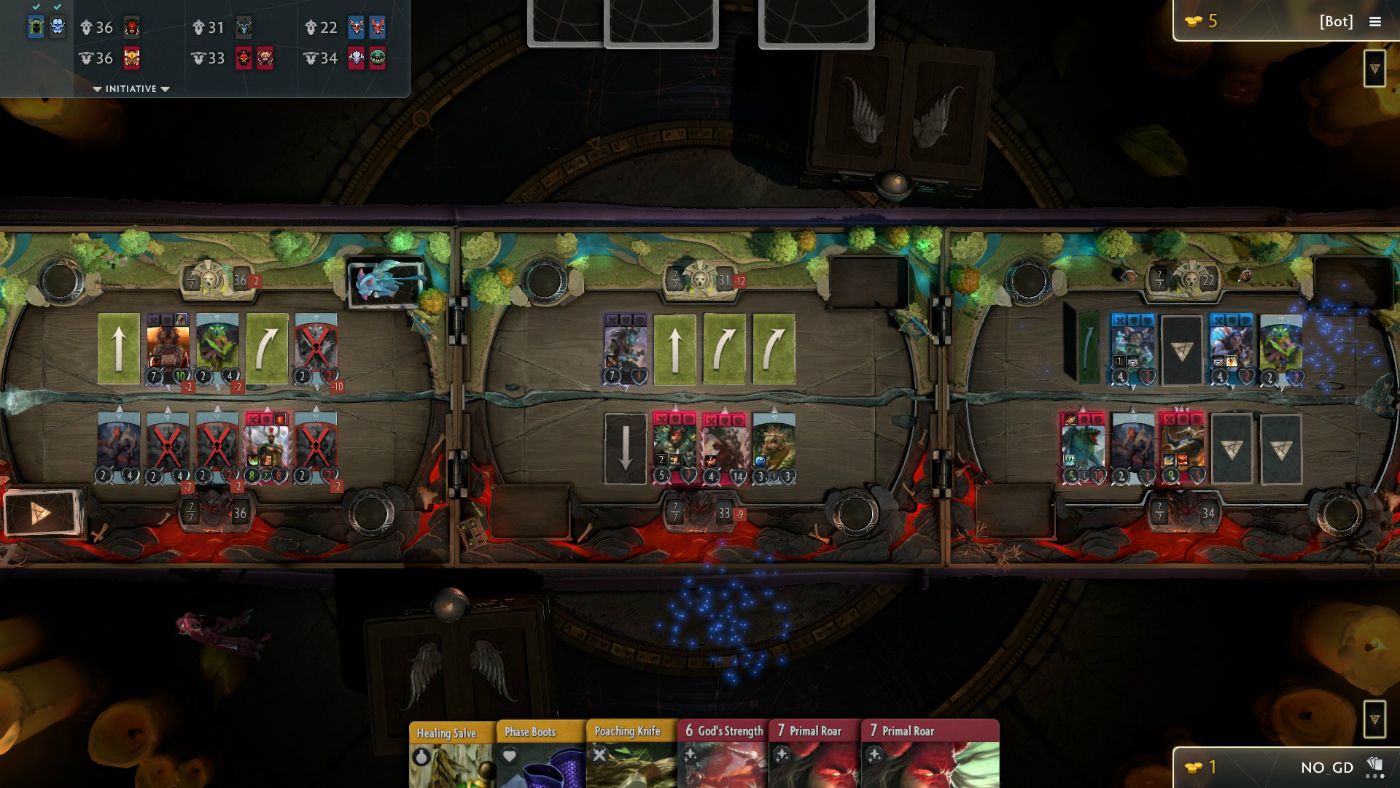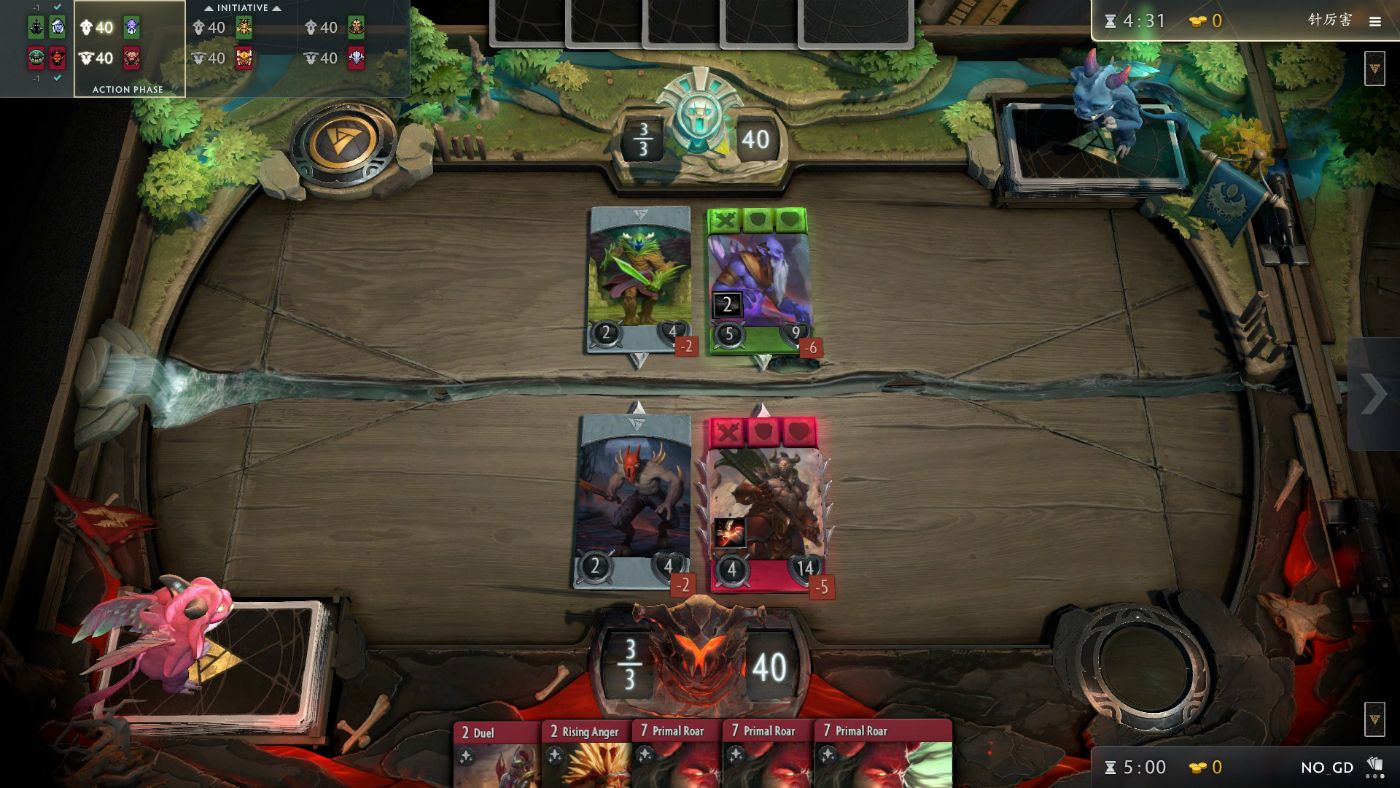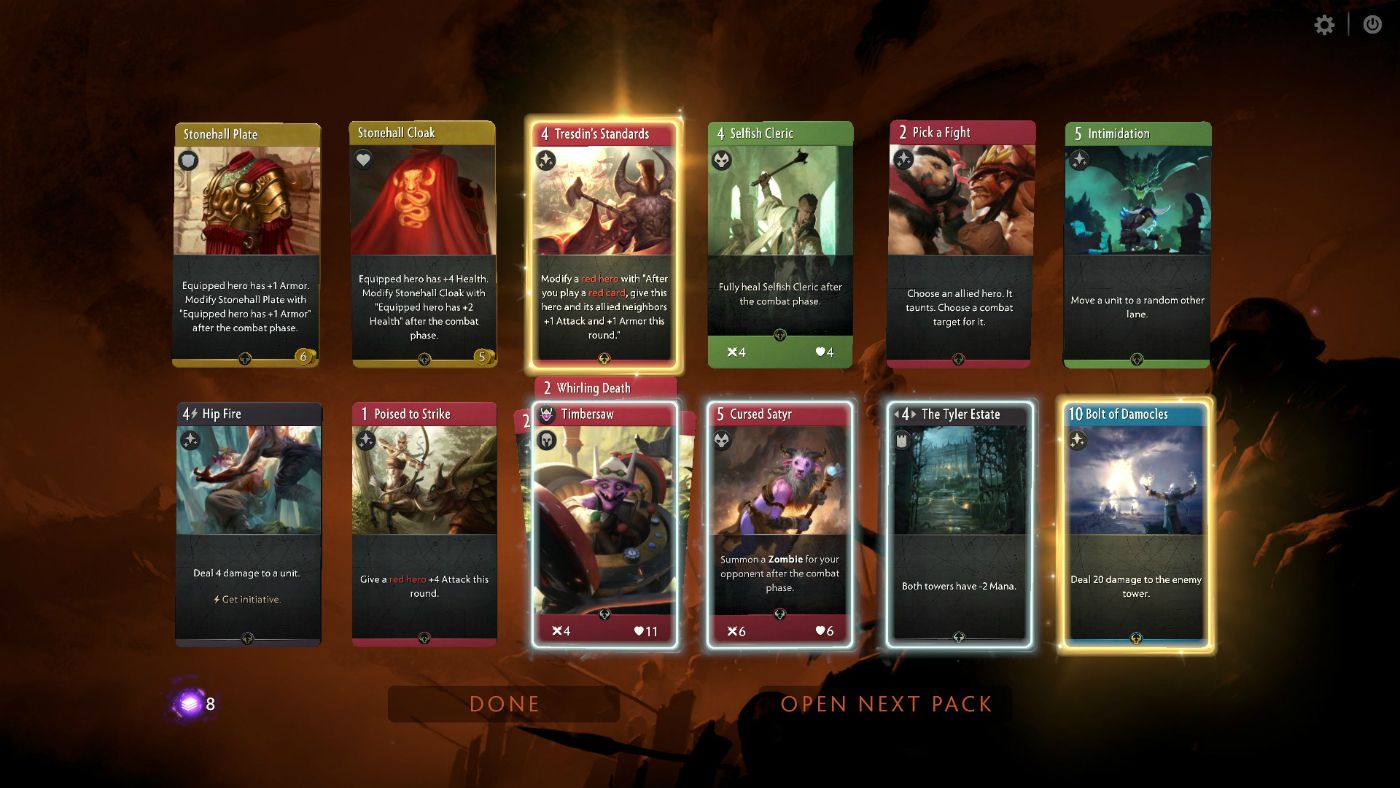Artifact is Valve's answer to the growing demand for online card games. What began in earnest with Magic: The Gathering's first online effort over a decade ago became more than a niche once Blizzard released Hearthstone, and now developers everywhere seem to be producing games that have card slinging at the core of their design.
Not every game begins with the pedigree that Artifact has, though. Artifact is based on DOTA 2 and has all of the lore and aesthetic that comes with that incredibly popular property, right down to some of the finest voice acting and artwork players will find in any game. Valve's fledgling title also has the benefit of being designed in collaboration with one Richard Garfield, the man behind Magic: The Gathering and a slew of other popular tabletop endeavors. If any game released recently is going to threaten the already established giants of this genre, it is certainly Artifact.
Related: Steam Must Innovate to Keep PC Market Over EA and Xbox
In playing Artifact, a few things become obvious from the beginning. One is that the polish on this game is unheard of for a title that is just releasing. There don't feel like too many egregiously broken cards from the start, which is rare, and the game's UI, collection, and gameplay windows are all sleek and easy to navigate. Another standout - the game's core mechanics, which turn the online card game genre on its head by conducting battles in three different areas, called lanes, all at once. Instead of keeping track of one battlefield, players need to keep track of a trio of them, and with each passing turn, that becomes more difficult to do.
Players select from DOTA 2-inspired heroes, assembling a team of five of them across different "colors" that represent philosophies in deckbuilding. Of those colors, three of them seem pretty balanced so far and know what they want to be doing - black destroys, red is aggressive and combat oriented, green is a little more defensive - while one, blue, seems to lag behind quite a bit, perhaps as a result of a bit of a murkier identity. That isn't to say blue is unplayable, just that deckbuilding with the color, as it is in Magic, can be a little bit trickier.
Deckbuilding is also a joy in Artifact. There are so few outright unplayable cards, especially in draft, that it feels like the player skill ceiling might as well be in the atmosphere somewhere. It really is incredible how nuanced many of the deckbuilding decisions are before heading into constructed, and while gamers aren't given a particularly large collection to work with, it nevertheless felt like there were options even early into gameplay time. Draft, on the other hand, is complex right from the beginning, with players tasked to build decks out of 5 packs of cards much the same way that other games drafts (or Arena, in Hearthstone) work. The difference is that almost every card has a functionality that could be useful, so cutting the last few cards to make a deck can be agonizing in the best way.
Playing Artifact is a lot to wrap one's head around at first, and continues to challenge even hours into the experience. This is not a simple card game, and it wouldn't be even if it were just focused on one battlefield. Balancing three is difficult. Early into play, each lane starts with three heroes and creeps. In successive turns, players get to deploy their other two heroes into lanes of their choosing. Heroes who die aren't gone forever - it just takes a turn cycle before they're available again, although that can be a major difference, of course. Like the game it is inspired by, heroes also keep whatever equipment they've been given over the course of the game when they die, so when they are deployed again they don't immediately get demolished by a character with better equipment than them.
The item shop phase in the game occurs after everyone is done their actions for their turn. Players earn gold after killing creeps, and much more gold after killing a hero, which can then be spent on equipment that goes on the player's heroes currently in play. The equipment boosts stats (usually) and costs nothing to play, so it is a huge boon to get ahead early with equipment and try to snowball that advantage.
All of this is great, but when it is combined, the fact of the matter is Artifact begins to feel a little bit too complex to succeed on a grander scale. Not in the sense that the game isn't enjoyable, but moreso that it is meant to be enjoyed thoroughly by some of the strongest card playing minds in the world, and not necessarily the rest of us. There's a lot to keep track of in game, and that kind of mental note-taking and upkeep isn't going to appeal to everyone. If there was any one concern Valve should have, it is this: Artifact is a great game that requires an incredible level of intellectual investment, coupled with the time to make that worthwhile, to pay dividends. That is a hard sell for gamers who are already inundated with card game options with even more on the horizon, and it could be what makes Artifact ultimately unable to find the kind of staying power its level of detail, aesthetic, and presentation deserves.
...that, or the economy of the game, which is facing heavy criticism already. Artifact costs money to play up front and doesn't equip players with a ton of options right out of the gate. After that, players must be good enough to routinely earn money in competitive options (at the beginning, that's just not going to happen) or sink even more money in to play games of draft where the cards picked get kept, helping the collection grow while at least playing the game. That kind of financial gate-keeping is lessened by the fact that players can sell extra cards they don't need on Steam's marketplace, but having to monitor card prices seems like another way to turn away interest rather than a selling point that will attract new eyeballs. Perhaps players have simply been spoiled by digital card games thus far - and the appeal of earning packs and thus money if one does well is certainly fascinating - but it would be nice if the game was just a little more generous, at least in the early going.
Overall, Artifact is a great game that people who love deep strategy and card playing will absolutely adore. There are issues, though. It's hard to watch thanks to its complexity, meaning there won't be a lot of people picking it up through watching streamers trying it out. It's even harder to master, and will probably be a major source of frustration for newbies for days rather than the hours it takes to grasp its competitors. It's hardest to stomach how much money many gamers will need to sink into Artifact to become and remain competitive, though, and the economy is really going to be the dealbreaker for a lot of the game's potential devotees.
Artifact, then, is in a weird place. It comes highly recommended as one of the best digital card games ever released, with the caveat that even with so many great selling points, it's also an incredible investment in time and brain power to get to a point of competency. That's fine for many card games, but given how much Valve has sunk into Artifact already - not to mention the million dollar tournament the developer will be hosting for it after release - being a niche entry into the digital card game genre simply might not be good enough. We'll see how the draw of prize money affects more casual players, but for now, Artifact is a game well worth your time - provided you have enough of it, and some extra cash, to spare.
More: Steam's Actual Player Counts Per Game Leaked - Here's The Full List
Artifact is currently available on Steam. Screen Rant was provided an early access code for the purposes of this review.




